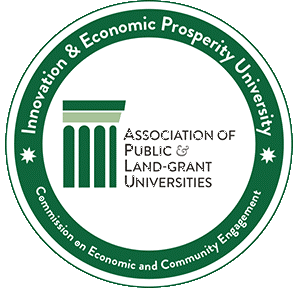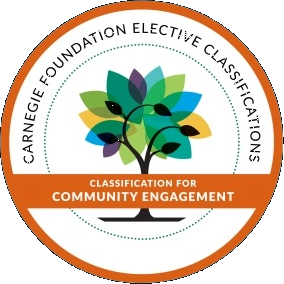Flint Leverage Points Project
CERC is conducting an evaluation of the Flint Leverage Points Project (FLPP). The overall goal of the FLPP is to restructure food systems in the Flint metro area to increase access to healthy and affordable food for all residents of the Flint metro area. The project is based on the assumption that the food system in Flint currently exists in a sub-optimal, ‘emergency’ state, due to the presence of feedback loops which act to resist efforts to move the system towards a more desirable state. Making changes in the system in order to ‘tip’ it into a more desirable state requires achieving the following objectives:
1. Identify the factors and vicious cycles that maintain the Flint metro food system in its current, sub-optimal state.
2. Identify the leverage points and virtuous cycles in the Flint metro food system that steer the system toward the more preferred state of: (a) increased access to healthy food; (b) better community health, nutrition, and economic outcomes, and (c) programmatic sustainability.
3. Identify the barriers/incentives for collective action and sustainable positive outcomes across food programs in the Flint metro food system.
4. Develop plans to use resources more efficiently and strategically to improve social or environmental returns on investment.
5. Identify the power brokers/decision makers who have the agency, social capital, and trust that can break the reinforcing loops or promote more virtuous cycles.
The method for achieving these objectives is participatory modeling (PM). PM is a learning process that surfaces the implicit and explicit knowledge of stakeholders to create formalized and shared representations of particular systems, often in the form of interactive simulation models. These simulation models facilitate decision making and collective action by providing interfaces that enable stakeholders to interact with the models and test the consequences of various policy options.
The evaluation will assess the success of the PM process by gathering stakeholders’ perceptions of the extent to which they have opportunities to contribute their local expertise and share their values, the extent to which they felt that their expertise and values were well-represented in the models developed, and the degree to which they felt that they were involved in the conceptualization, development, parameterization, and validation of models. In addition, the evaluation will assess the extent to which stakeholders felt that their participation increased their understanding of the Flint food system and its dynamics under various conditions.
People:
Director for Community-Engaged Research, Office for Public Engagement and Scholarship
Adjunct Faculty, Department of Psychology
Adjunct Faculty, Department of Human Development and Family Studies
Office for Public Engagement and Scholarship









